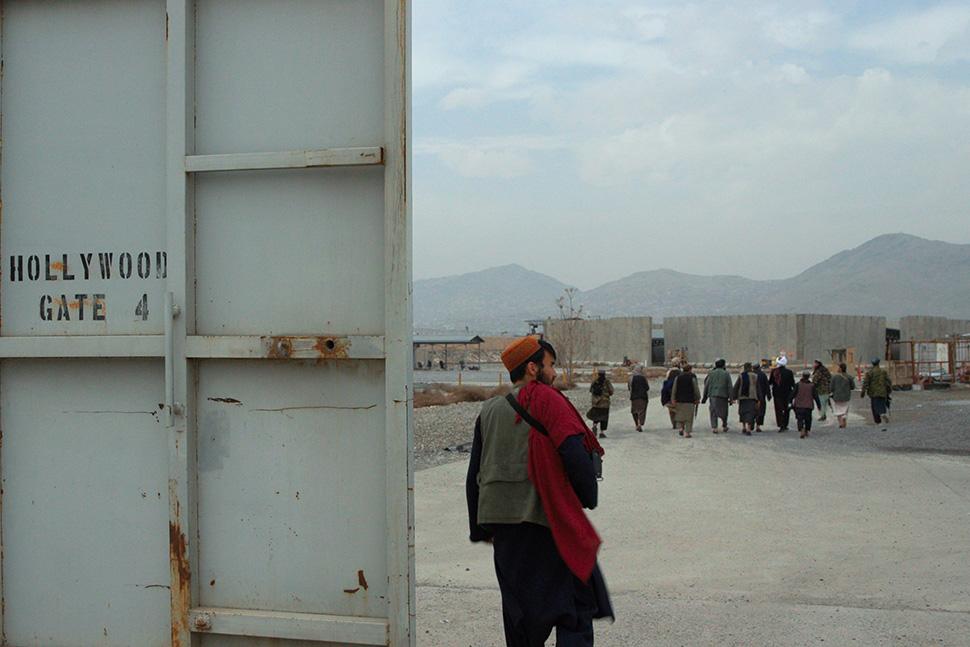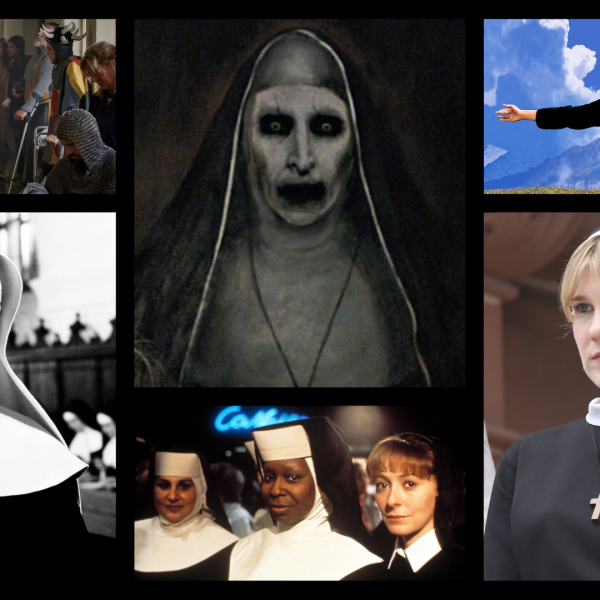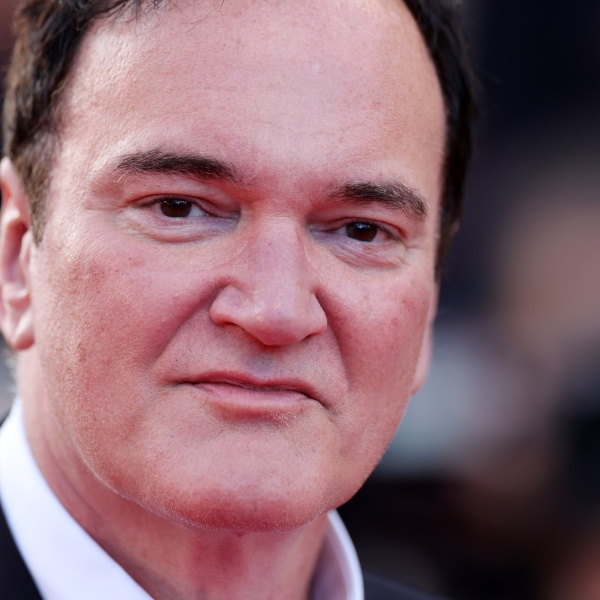This is what access journalism should be. And what access.
In late 2021, the Taliban invited journalist Ibrahim Nash’at to follow around and film a top commander, Mawlawi Mansour, recently appointed chief of the new government’s air force, and a lower-level fighter named Mukhtar. Nash’at would not be allowed to follow anyone else, nor could he turn his lens to the suffering of the Afghan people writ large.
Instead, the filmmaker turned the constraints the Taliban imposed on him into an asset: the limits they demanded reveal just how limited, how compartmentalized, and how detached the fundamentalists themselves are from the people they rule. Filmed over a year, “Hollywoodgate” — named for the gate at the CIA’s largest former base in Kabul — is a documentary that reveals the Taliban like never before, and pretty much confirms Westerners’ fears about them, without Nash’at necessarily having his thumb on the scale.
If the title “Hollywoodgate” summons images of Tinseltown far removed from an Afghanistan scarred by decades of war, it’s one that fits the bunker-mindset of the U.S. forces that tried to maintain order there for 20 years, before the tumultuous withdrawal in August 2021. The documentary opens with Nash’at following Mansour as he tours the CIA base, shortly after the evacuation, and the Taliban fighters find items of American culture left behind. There’s a Dallas Cowboys mug. One Talib rummages through a fridge with a “beer is not free” sign on it and scrutinizes bottles of Jagermeister, Fireball whiskey, and Johnnie Walker Red Label. These seem like impossible luxuries — even if their fundamentalist faith prevents them from drinking — like artifacts left behind from a vanished civilization. And yet, every Talib has a smartphone, many of them iPhones, and most of the light we see comes from the devices alone, as few buildings, at least in the immediate aftermath of the withdrawal, have power.
Over the next 90 minutes, Nash’at shows the evolution of the Taliban during their first year ruling Afghanistan once more. Near the beginning, he shows Mansour touring hangars full of wrecked U.S. aircraft. It’s one of the few times in the movie that Volker Bertelmann’s score appears: The Oscar winner for “All Quiet on the Western Front” deploys piano, cello, and contrabass for an ominous, unmelodic sound. It appears near the end of the film too, strings rising with a slow-burn anxiousness, as we see that, astonishingly, the Taliban have repaired most of the aircraft and made them flyable, culminating in a military parade to celebrate the first anniversary of their takeover. Mansour seems to have difficulty multiplying 100 X 67 at one point in the film, but once again Westerners may be underestimating the Talibs’ ingenuity and resolve — and the extent of their ambitions.
At another point early in the film, the lower-level fighter Mukhtar takes Nash’at to a cave in an abandoned, craggy landscape where he hid out during the war. His bigotry — he suggests all of the Taliban’s enemies in Afghanistan during the war were Jews and shouts, “Hey, Jews! You lost the war!” — makes you think he’s a small, petty, ignorant individual doomed to just be ordered about by people who think of him as cannon fodder. His vision seems as limited as what the spotlight from his iPhone shining on the cold ground at night can show as he wanders away from his cave. And when he says the Taliban would rule the world if they had American technology, it seems laughable.
By the end of “Hollywoodgate” those laughs catch in your throat, as Mansour, on a phone call with the defense ministry of Tajikistan, threatens invasion of the neighboring country. Or at least that the Taliban will harbor Tajikistan’s enemies. We’ve just seen the military parade, celebrating one year since the U.S. withdrawal, with all of those aircraft now repaired — and uniquely Taliban touches like a parading “suicide squad battalion” — and envoys from Russia, Iran, Pakistan, and China in attendance. It’s impossible to shake the notion that we may have finished with the Taliban when the U.S. and NATO withdrew, but that the Taliban isn’t done with the West — nor will they stop popping up in our lives. No nation has officially recognized their government, but their ambitions remain global.
Nash’at’s filming and editing style feels almost invisible, like he’s really presenting what he’s seeing without comment. It helps that he lets longer scenes unfold without edits, and you even catch his reflection in mirrors as he’s filming so the audience is aware of how his presence may be affecting Talibs’ behavior. One does wonder what material was left out, though: There’s no reaction by the Taliban here to the U.S. airstrike in 2022 that killed Al Qaeda leader Ayman al-Zawahiri, who was still hiding out in Afghanistan. Nash’at would have been there when that happened.
Born in Egypt and based in Berlin, Nash’at has worked as a journalist for Deutsche Welle and other outlets. He says he was drawn to making a film about the Taliban because he remembers people around him in his youth thinking they were heroes, and that he questioned that notion. With “Hollywoodgate,” he says that his film exists in the gap between what he saw and what the Taliban wanted him to see.
There’s another, even more instructive function here the film provides, though: Much of what we see is what the Taliban wants us to see, but as that’s what’s really important to them, it’s also what we — anyone who’s a non-fundamentalist — need to see to understand them. One Talib gives a metaphor for why they want women to wear a burqa. Throw two pieces of chocolate on the ground, he says, one has a wrapper on it, the other doesn’t. Which one do you want to eat?
Vile as that is, this is absolutely what this Talib wants to convey to Nash’at. You can’t imagine the Taliban would be angry with him or threaten his safety because of the film that exists — though he did put himself in peril, with Mansour saying of his filming, “If his intentions are bad, he will die soon” — because this is the worldview they want to project. That’s the highest outcome that can emerge from access journalism: That what the subjects tell us is what we desperately need to know.
Grade: B+
“Hollywoodgate” premiered at the 2023 Venice Film Festival. It is currently seeking U.S. distribution.






